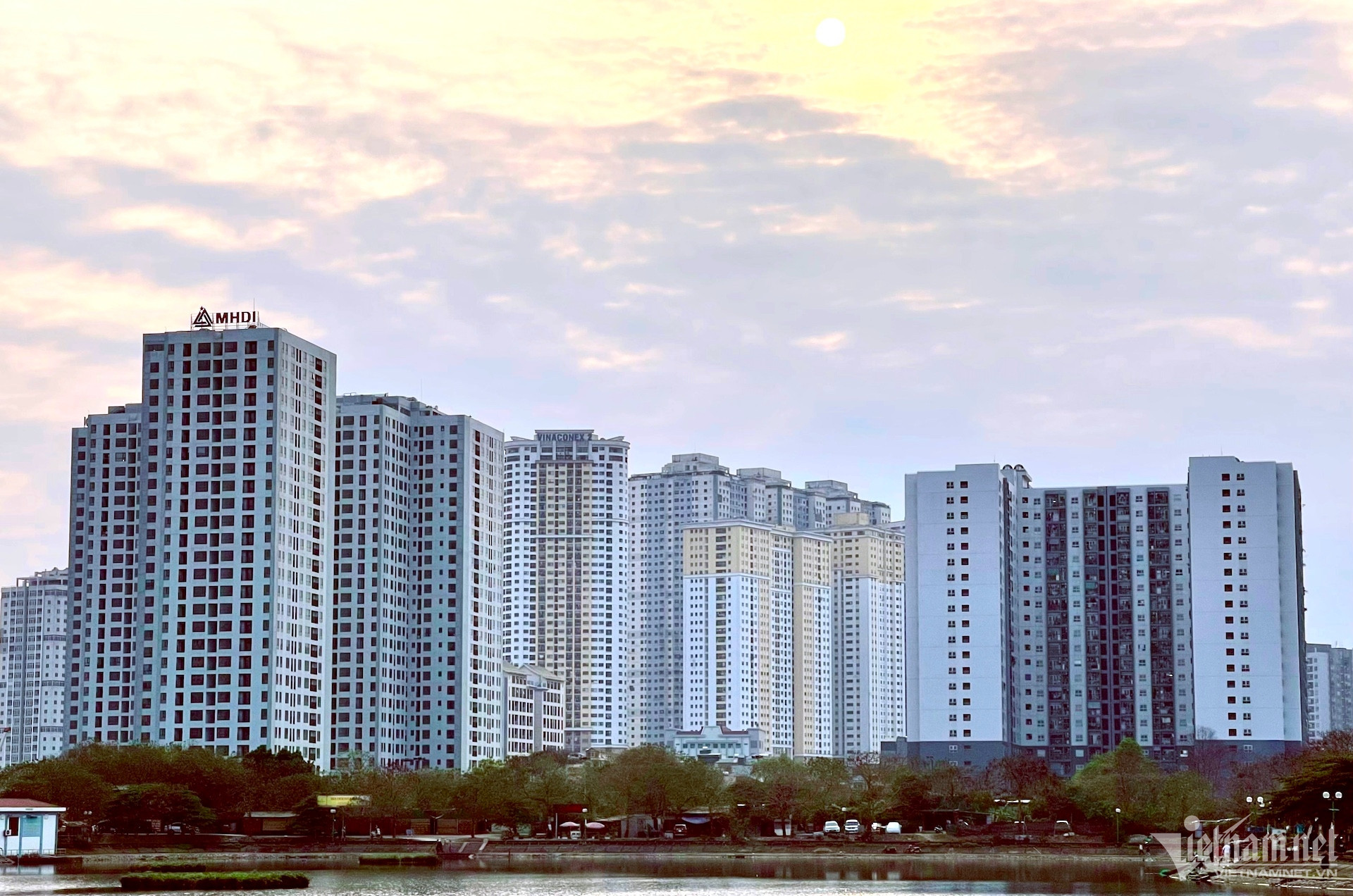
In its report on the implementation of the National Assembly’s resolutions on questioning and thematic oversight, the Ministry of Construction (MOC) identified the main cause as difficulties faced by real estate businesses.
Additional hurdles were problems in investment procedures such as land price determination, land-use fee calculations and site clearance, especially in access to capital, bond issuance, and fundraising from customers, leading to project delays or suspensions.
To address legal bottlenecks, the National Assembly has amended three laws on land, housing, and real estate business to harmonize the legal framework on investment, bidding, and real estate operations.
A task force under the Prime Minister was established to resolve issues in real estate project implementation. After working with eight localities, including Hanoi, Da Nang, HCM City, Hai Phong, Can Tho, Dong Nai, Binh Thuan, and Binh Dinh, and real estate businesses to get information and assess projects, the task force has solved 188 proposals related to 203 real estate projects.
It sent 137 documents to provincial and city People’s Committees and 14 to the Ministry of Agriculture and Environment and the Ministry of Finance to resolve issues within their authority.
Beyond settling problems for hundreds of projects to boost real estate supply, since 2023, MOC has submitted multiple solutions to the Government and Prime Minister to restructure the market. In April 2023, it proposed a plan to invest in at least 1 million homes for low-income earners and industrial park workers for 2021-2030.
To date, 657 social housing projects are underway nationwide, with 597,000 units. Approximately 66,700 units have been completed, 124,300 are under construction, and 406,000 have received investment approval.
To increase social housing supply, the Government is proposing a resolution to pilot policies to streamline investment, construction, and pricing procedures for social housing sales and rentals, helping businesses cut costs and reduce prices.
The Ministry has deployed task forces to inspect and urge the completion of social housing targets set by the Prime Minister for 2030. It is also reviewing standards, regulations, and cost norms for social housing, researching model designs suited to different regions for mass construction to save costs and lower prices.
Additionally, it is establishing mechanisms for state-owned enterprises specializing in social housing development, piloting direct land allocation without auctions or bidding for such enterprises.
Dinh Trong Thinh, a respected economist, noted that persistent supply shortages have driven apartment prices in major cities like Hanoi and HCM City to rise rapidly across primary, secondary, and even older projects. He emphasized that addressing the supply-demand gap, particularly in social and affordable housing, is key to cooling prices.
Under the Prime Minister’s decision, localities must set social housing goals in their 2025–2030 socio-economic development plans, totaling 995,445 units, including 100,275 to be developed in 2025, 116,347 in 2026, 148,343 in 2027, 172,402 in 2028, 186,917 in 2029, and 271,161 in 2030.
The Hanoi’s People’s Committee has directed agencies to expedite the construction of two concentrated social housing projects, Tien Duong 1 and Tien Duong 2 (Dong Anh), using a “green lane” process to start construction by September.
This was outlined by Hanoi Deputy Chair Duong Duc Tuan during a meeting on the implementation of five concentrated social housing projects in the city.
The “green lane” approach aims to shorten processing times as directed by the city’s Chairman.
Specific deadlines for agencies have been set. The Construction and Finance Departments must finalize investor selection by May 15. The Construction Department is in charge of guiding investors to complete project planning and design, targeting construction start in September;
The Planning and Architecture Department will define land boundaries for the two projects by March, so that the Agriculture and Environment Department can transfer boundary markers to Dong Anh District authorities.
The Finance Department will guide Dong Anh District on budgeting for compensation and resettlement by March; and Dong Anh District must complete land acquisition and clearance by August.
In addition to these projects, Hanoi’s People’s Committee set requirements for three other concentrated social housing projects in Dai Mach (Dong Anh), Tien Phong (Me Linh), and Co Bi (Gia Lam), as well as the C1-5 land plot belonging to S5 urban subdivision, covering the communes of Ngoc Hoi, Dai Ang, Lien Ninh in Thanh Tri district, and Khanh Ha commune in Thuong Tin.
The Construction Department has been tasked with studying the draft National Assembly resolution on piloting specific social housing policies. Dong Anh and Gia Lam districts must use local budgets to complete detailed 1/500-scale planning for these projects by July 1.
Hong Khanh